‘Wild Horses’: The Story Behind The Rolling Stones Song
A song of loss that arrived as their 60s dream shattered, ‘Wild Horses’ is the Rolling Stones at their most heartrending.
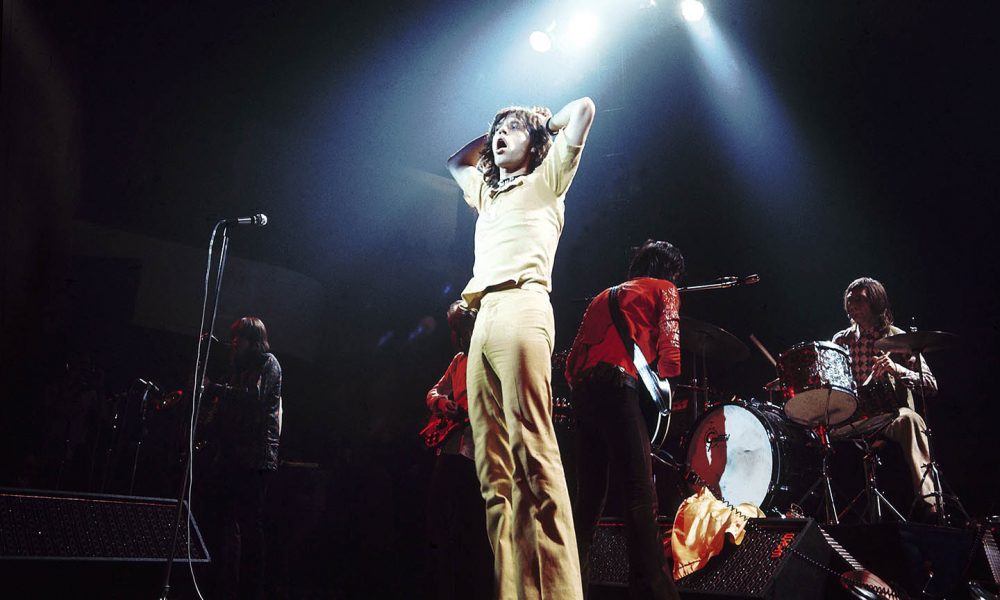
It’s fair to say that, despite filling each of the previous six years of their existence with scandals and controversies, for The Rolling Stones, 1969 was undoubtedly their most dramatic year yet. Sessions for what would become Let It Bleed had started, but largely without guitarist Brian Jones, whose perpetually stoned state rendered him useless when he was present. Inevitably, something had to give. That May, the band auditioned and hired 20-year-old guitarist Mick Taylor. In June, Brian, who had founded the Stones, was asked to leave the band. A month later, he was found dead in his swimming pool.
Brian’s death hit Mick Jagger’s girlfriend, Marianne Faithfull, hard. After the couple flew to Australia, missing Jones’ funeral in the process, Faithfull fell into an overdose-induced coma. Then, in August, Keith Richards became a father for the first time – his girlfriend, Anita Pallenberg, giving birth to their son, Marlon.
Listen to The Rolling Stones’ “Wild Horses” now.
In October, meanwhile, the ramifications of the Stones’ extricating themselves from their management deal with Allen Klein revealed the severity of their financial situation. Fortunately for the group’s livelihood, without Jones and the criminal record that inhibited his access to the country, the Stones were now free to tour the US for the first time in three years.
Writing the song
Though the prospect of getting back to playing for American audiences was a blessing to the Stones, it came with its drawbacks. Keith did not want to leave his newborn son. “I knew we were going to have to go to America and start work again, to get me off my ass, and [I didn’t want] to go away,” Keith said. “It was a very delicate moment; the kid’s only two months old, and you’re goin’ away. Millions of people do it all the time, but still…”
This separation anxiety was on Keith’s mind as he picked up his 12-string guitar and found himself strumming a forlorn, minor-key chord progression. As he shaped the chorus, two words suddenly presented themselves: “Wild Horses.” “It was one of those magical moments when things come together,” he said. “You just dream it, and suddenly it’s all in your hands. Once you’ve got the vision in your mind of wild horses, I mean, what’s the next phrase you’re going to use? It’s got to be ‘couldn’t drag me away.’”
Upon passing what he’d conjured onto Mick, the song would acquire its verses. In her autobiography, Marianne claims that, waking up after her six-day coma, she’d assured a fearful Jagger that “Wild horses couldn’t drag me away.” Though Mick was naturally relieved that Marianne had pulled through, the incident did little to help the widening split that had developed between them, spelling an end to their four-year relationship. While the Stones toured America that November, the newspapers back home reported that Marianne had left Mick for Italian artist/director Mario Schifano.
It’s difficult to imagine this didn’t weave its way into the poignant invocations of “Wild Horses” (“You know I can’t let you slide through my hands,” Mick vows), but it’s an assumption that Jagger has previously discredited. “Everyone always says this was written about Marianne,” he said, “but I don’t think it was; that was all well over by then. But I was definitely very inside this piece emotionally. This is very personal, evocative, and sad. It all sounds rather doomy now, but it was quite a heavy time.”
Mick’s break-up woes are all too palpable in the song’s candor, as he sings to the “graceless lady” inflicting such “a dull, aching pain.” His voice is perhaps the most tender it has ever sounded, so warm and yearning in the verses, and so affectionate in the choruses, with added emotional emphasis from Keith’s lonesome harmonies. “Well, that’s what you’ve got to do with these kinds of tunes,” Mick said of the song’s sensitivity. “You’ve got to emote it, otherwise it’s meaningless. When I wrote those verses I was feeling vulnerable, so you take it up.”
Muscle Shoals
Days after their tour wrapped up in Palm Beach, Florida, on December 2nd, The Rolling Stones entered Muscle Shoals Sound Studios. The newly-opened premises had been founded by four musicians formerly of Rick Hall’s FAME Studios house band, revered for their work with Etta James, Wilson Pickett, and Aretha Franklin. It was here that the group stopped in to work, recording three songs in three days.
“It’s one of Keith’s things to go in and record while you’re in the middle of a tour and your playing is in good shape,” Charlie Watts said. “The Muscle Shoals Studio was very special, though – a great studio to work in, a very hip studio, where the drums were on a riser high up in the air, plus you wanted to be there because of all the guys who had worked in the same studio.”
With engineer Jimmy Johnson at the helm, the Stones embarked on their usual process of working up a song: tirelessly running through and gradually refining it over hours. By the end of the first day, they’d nailed their cover of Fred McDowell’s “You Gotta Move,” and by the second, they had “Brown Sugar.” On the third day, they tackled “Wild Horses.”
Recording the song
Finding themselves in the Deep South, the Stones couldn’t help but feel inspired. The walls were saturated with the sound of R&B. As Mick Taylor modified his acoustic guitar to a Nashville tuning, the song began to soak up a distinct country flavor. “Being there does inspire you to do it slightly differently,” Jagger once admitted.
Ian Stewart, the Stones’ faithful pianist/road manager, had excused himself from the piano stool, insisting he didn’t want to play minor key songs. In his place was Jim Dickinson, a producer friend who was visiting from Memphis. “Jim was out behind where we put the guitar amps,” remembered Jimmy Johnson. “[We had a] tack piano, an old upright piano; we put tacks on the hammers, so it sounded like a honky tonk. Anyway, Jim was back there just tiddling on it, playing along with what they had settled on as the groove, and Keith walked by and said, ‘Hey, you need to play that!’”
Mick finalized the lyrics as they worked through, and once the vocals were down, the song was complete. In the Maysles brothers’ 1970 documentary movie Gimme Shelter, we can see the Stones listening to a playback of the “Wild Horses” master, basking in its delicate glory. After that, they were done.
“When the session was over, and they had the rough mixes, Jagger sat there and shredded the tape, except for the masters,” Jim Dickinson revealed. “He erased every mix and every outtake that they weren’t taking with them. And he shredded the eight-track except for the masters, and ran the tape off on the floor. There ain’t no bootlegs on that session.”
Gram Parsons
In the wee small hours of December 7th, the Stones were in their San Francisco hotel getting to grips with what they had just gone through. Their free concert at Altamont Speedway that day was intended to be a token of gratitude from the Stones to their fans for a successful tour, but was cursed with violence from the off (thanks to the heavy-handed security of the Hell’s Angels), and culminated with a fan being stabbed to death in front of the stage. Having escaped to safety, the Stones were unwinding with friends, including Gram Parsons from The Flying Burrito Brothers.
Gram Parsons first encountered the Stones in 1968 when, as a member of The Byrds, he met them in London. A friendship blossomed with Keith, based on a shared love of country music. The Florida-born Parsons had just steered the former folk-rock Byrds in a purely country direction, but was soon fired from the band when he chose to hang out with Keith in London instead of continuing on with their tour. He went on to form The Flying Burrito Brothers with Byrds bassist Chris Hillman, and the band had played third on the bill at Altamont.
“We were all just shaking from the whole experience, and they were leaving the next day,” Parsons recalled, “and [Mick] said, ‘I want you to hear this song man, because I think it’s something that you might be interested in. And he played me ‘Wild Horses.””
Soon after, Gram apparently received the master tape of “Wild Horses” with the intention of either him or the Burritos’ pedal steel player “Sneaky” Pete Kleinow adding a part to it. Whatever they added, the Stones didn’t use, but the time had allowed Gram and the band to learn it, and they recorded a version for their second album.
Burrito Deluxe was released in May 1970, almost a full year before the world would hear the Stones’ version of “Wild Horses,” leading many to believe Gram was involved in the creation of the song. The truth is difficult to decipher. What is clear is this: As similarly sweet as the Burritos’ interpretation is, it lacks the penetrating poignancy of the Stones’ version.
The release
The Rolling Stones wanted to put their business affairs in order before releasing any further new material. Allen Klein’s contracts stipulated his ownership of all Jagger/Richards songs recorded by the group in the 60s, including “Brown Sugar” and “Wild Horses,” and his dismissal had to be concluded. Their own label, Rolling Stone Records, was launched in 1970, and in April 1971, they released Sticky Fingers.
The third track on the album, “Wild Horses” was immediately praised for its bittersweet beauty. Released at the time as a single in Canada and the US only, it fared better in Europe when an updated version from the Stones’ Stripped album was released in 1995.
Through the years, those who have offered their own interpretations on “Wild Horses” on stage and on record span a diverse range of artists and styles. The Sundays’ ethereal indie version, Alicia Keys’ R&B piano ballad, Guns N’ Roses’ soaring guitar duel, Sharon Jones & The Dap-Kings’ vintage soul take, and, yes, even Susan Boyle’s rendition are all testament to the song’s readily emotive heart.
Perhaps due to its delicate charm, it’s not a staple in the Stones’ concert set lists, appearing infrequently. When it is performed, “Wild Horses” is treated with the dignity it deserves, and has even been exalted by special guests worthy of its impassioned delivery. Dave Matthews, Eddie Vedder, and Florence Welch have all at one time shared a stage with the Stones, matching Jagger’s impelling vocals with their own responsive reading, each affirming the timeless appeal of the Stones’ most intimate, soul-baring ballad.


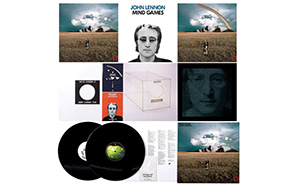
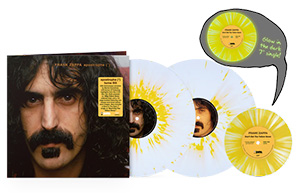

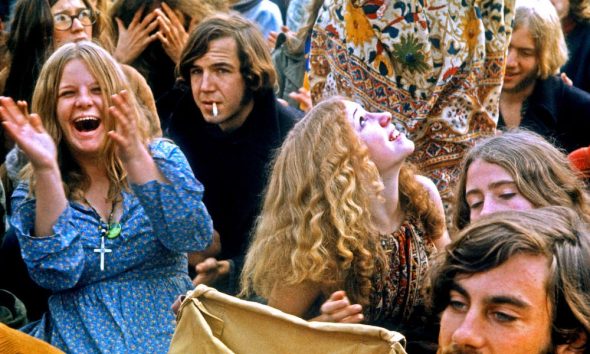
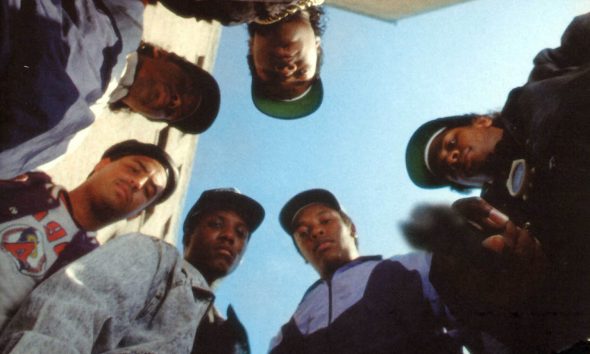

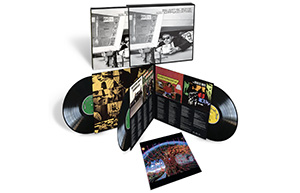

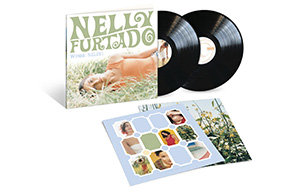
Lynn
December 1, 2022 at 12:41 am
One of the MOST epic Stones songs